Plant and microbe extracts are being screened for several activities at several institutions in the US and in Indonesia.
Screening at UC Berkeley
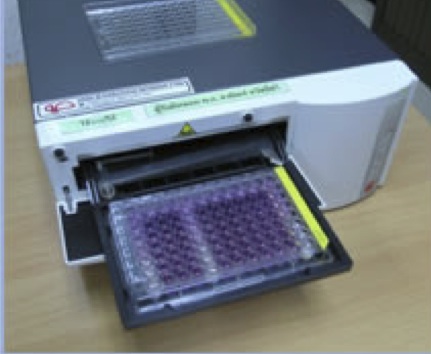
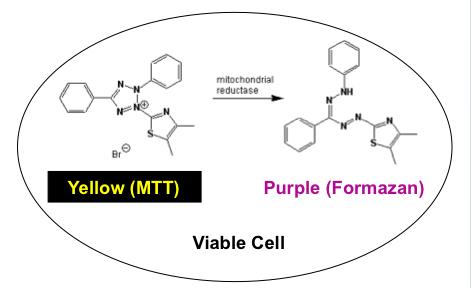 Extracts are being screened in the laboratory of Len Bjeldanes at UC Berkeley for anti-tumor activity using an MTT (Method of Transcriptional and Translational) assay. Non-tumorigenic cell lines including breast MCF 10A and macrophage immune RAW264.7 cell lines are being compared to tumorigenic cell lines breast MCF-7, MCF-10AT, MDA-MB-231 and prostate PC3 and LNCaP cell lines. The assay measures reducing potential cells via a colorimetric reaction.
Extracts are being screened in the laboratory of Len Bjeldanes at UC Berkeley for anti-tumor activity using an MTT (Method of Transcriptional and Translational) assay. Non-tumorigenic cell lines including breast MCF 10A and macrophage immune RAW264.7 cell lines are being compared to tumorigenic cell lines breast MCF-7, MCF-10AT, MDA-MB-231 and prostate PC3 and LNCaP cell lines. The assay measures reducing potential cells via a colorimetric reaction.
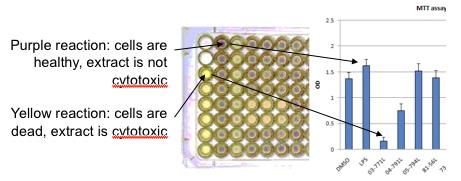
Extracts are also being screened at UC Berkeley for anti-inflammatory activity using NF-kB luciverase assay.
Screening at UC San Francisco
Microbe and plant extracts are being screened in the laboratory of Selena Bartlett at the Gallo Center for activity as opioid receptor agonists or antagonists to identify selective non-addictive agents for treatment of pain and addiction. The FLEX (fluid excitation) apparatus is being used to screen for effects on delta (DOP-R) and mu (MOP-R) opioid receptors using an opioid receptor-mediated Ca++ signaling assay.
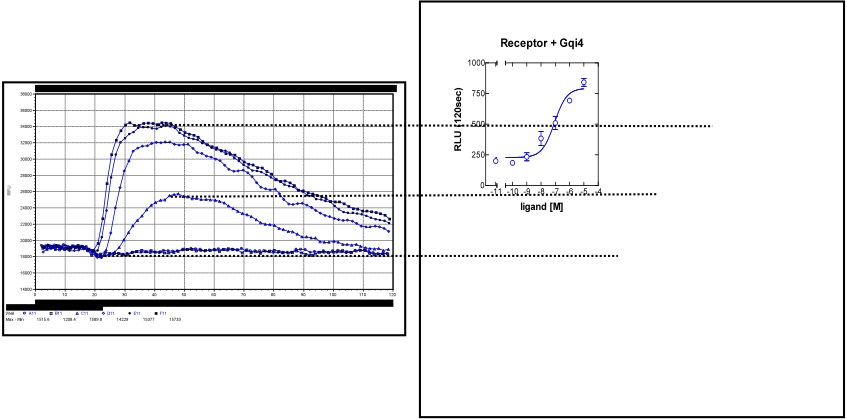
Screening at UC Davis
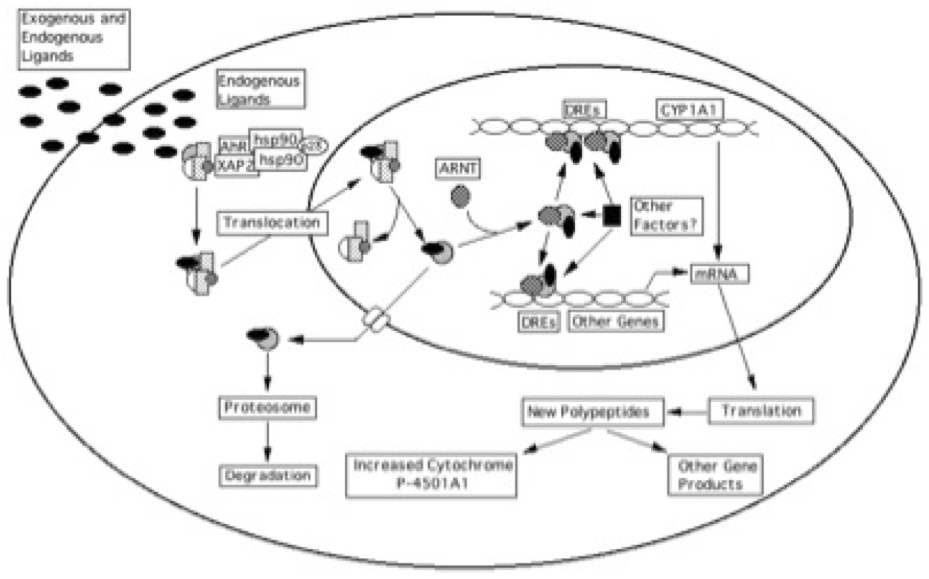
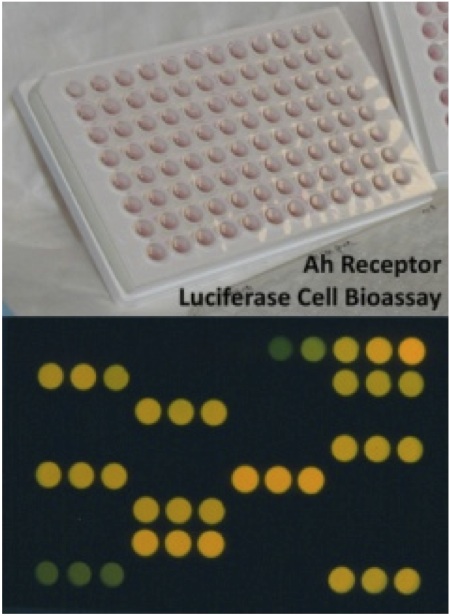 Extracts are being screened in the laboratory of Mike Denison at UC Davis for ability to increase the metabolic detoxification of toxic chemicals and enhance the development and activity of the immune system against invading viruses and bacteria. A luciferase reporter system is used in conjunction with an an aryl hydrocarbon receptor system.
Extracts are being screened in the laboratory of Mike Denison at UC Davis for ability to increase the metabolic detoxification of toxic chemicals and enhance the development and activity of the immune system against invading viruses and bacteria. A luciferase reporter system is used in conjunction with an an aryl hydrocarbon receptor system.
Screening at LIPI Biology and LIPI Chemistry
Fungi and yeasts are being screened for anti-tuberculosis activity using Mycobacterium smegmatis. Promising candidates are first identified using a disc diffusion test, then further screened using a micro dilution method. Extracts with an inhibition zone of 10 mm or more are then used for minimum inhibitory concentration (MIC) determination using the MTT assay.